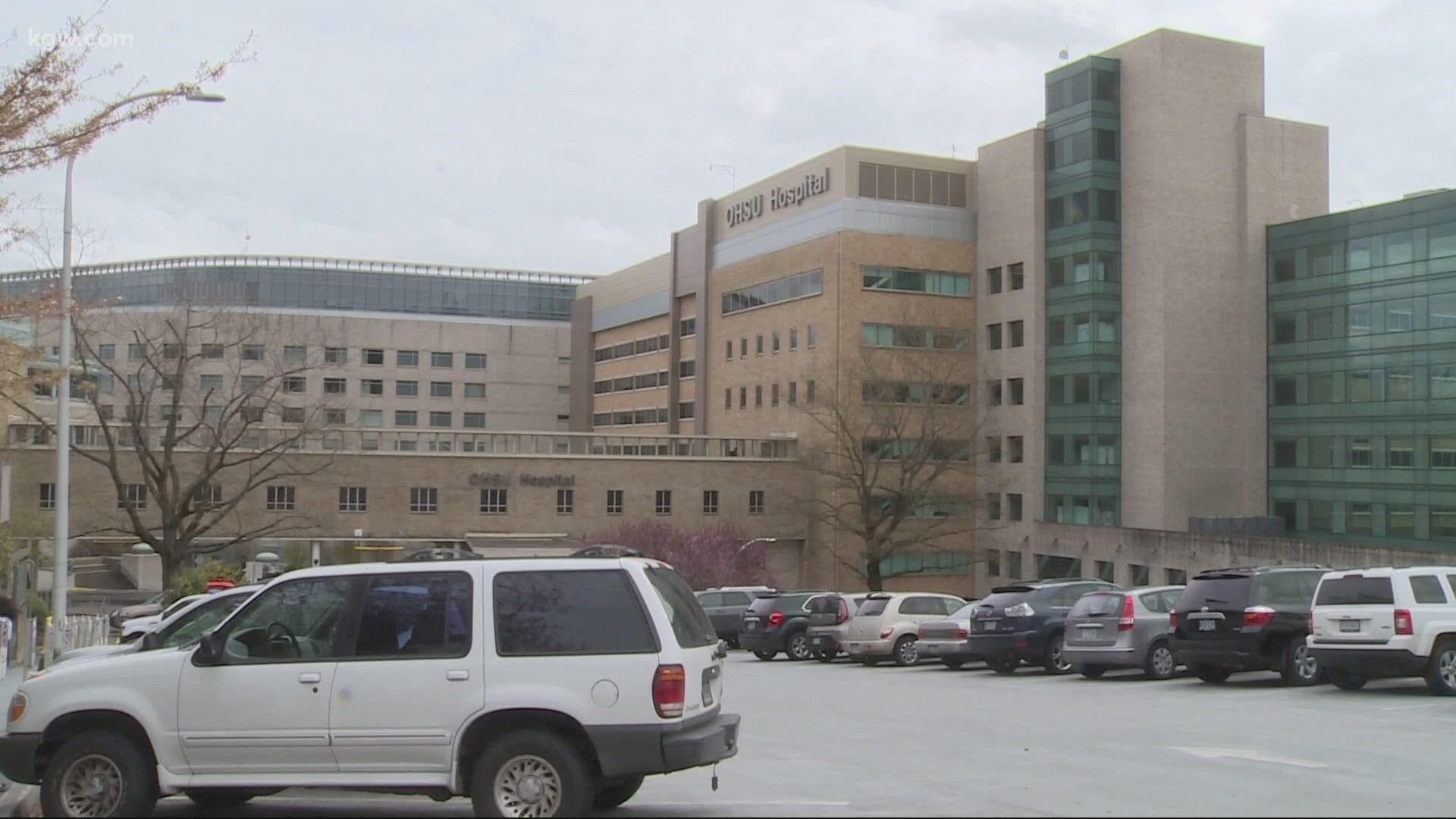PORTLAND, Oregon — With cases rising there's concern hospitals could be overrun with COVID-19 and flu patients.
But health care systems in Oregon have learned a lot over the last several months and are more prepared than they were earlier in the pandemic.
"The management of the capacity is better. We know better what it means to admit COVID patients, what is unique about this and how can we do this while also taking care of other patients in other areas of the hospital," said Dr. Matthias Merkel, Oregon Health & Science University (OHSU) senior associate chief medical officer for capacity management and patient flow and professor of anesthesiology and perioperative medicine.
"I think we're better at managing the disease once somebody does present with it," said John McCreary, Legacy Health Columbia Region Vice President of Medical Affairs.
OHSU and Legacy Health say they were never overrun with COVID-19 patients and credit Oregonians for taking precautions. They say individuals' diligent preventive measures will continue to keep health care resources available to Oregonians.
While coronavirus cases look similar to early on in the pandemic some things are different.
First, in addition to the hospital capacity data they submit to the Oregon Health Authority, hospitals share real-time data with one another to help collaborate and plan.
Access and protocols around personal protective equipment improved over the last few months as well, institutions learned more about treatment, and doctors have better options for the sickest patients so they don't always need a ventilator.
"We've just seen lower acuity in patients so we haven't seen the same need for ventilators as we did early on in pandemic," said McCreary.
Health systems worked this spring, during the stay-home order, creating surge plans to expand capacity. Hospitals can add surge beds for COVID-19 patients and others.
"Nothing is perfect but we certainly are farther along than we would have been at the beginning of this pandemic," said tri-county Lead Health Officer Dr. Jennifer Vines.
Vines says hospitals are running smoothly for now but county and state health officials are watching admissions and cases closely, and staying in close communication with the hospitals.
While they have surge plans, health care systems hope they're never needed, especially as flu season approaches and more people potentially land in the hospital.
"We should never kind of rely on needing to do that because surge means we alter our standard of care," said Dr. Merkel.
"That's a real concern in terms of local and statewide ability to expand to meet that need. So, as always, prevention is our best bet," added Dr. Vines.

